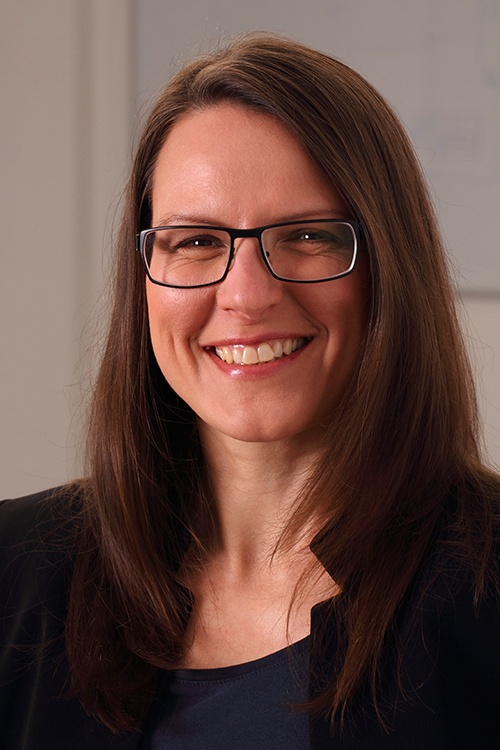There have never been as many unfilled IT positions in Germany as there are now. Bitkom published a study in November 2019 in which the extent became clear: There are 124,000 unfilled IT jobs in Germany. This represents an increase of 51 percent compared to the previous year. The number of unfilled IT positions has more than doubled within two years. In order to counteract the rampant shortage of skilled workers, new professional fields are emerging. This also includes the profession of the Low-Code developer, who develops software applications without programming themselves. They work with the software modules pre-made by developers and assemble them into one application according to the customer’s requirements. [1]
How do you actually become a Low-Code developer and what are the requirements for this job? What is day-to-day life like in application development? We asked our application developer Jeanine Prodolsky:
 1. Jeanine, what has your professional career been like so far? Which field did you originally get your start in?
1. Jeanine, what has your professional career been like so far? Which field did you originally get your start in?
I’ve always enjoyed natural science subjects. I originally studied to be a mathematics and computer science teacher. Then I switched my major to computer science with a minor in mathematics.
2. How did you end up becoming an application developer for Low-Code technology?
I already worked at Scopeland Technology as a student intern in the product department during my computer science studies. When I graduated, I definitely wanted to stay here. During an interview it turned out that I’d be better off in application development. I didn’t say “no” at the time and I quickly realized that I really enjoyed it. I’ve been working at Scopeland Technology ever since.
3. What is your everyday work like?
I’m currently working exclusively on the FIT project, which is the fisheries management system for the German Federal Government. This is a large-scale project for the Federal Office for Agriculture and Food (BLE) in the area of fisheries and catch regulation. Our application helps to monitor the fishing quotas and fishery expenses. In addition, fishing statistics are kept for all of Germany and the data is transmitted to national and international authorities and organizations. A total of two million lines of code were generated, 99.2% of which was done fully automatically.
Before FIT, I was involved in many other projects. Among others, we’ve developed applications for the Deutsche Mieterbund e.V., the Helmholtz-Zentrum München, and the Flughafen Berlin Brandenburg GmbH.
My workday tends to vary quite a bit and no day is like the previous one. I am the first point of contact for partners and customers and I also coordinate all inquiries and problems. I take on new requirements for the project, advise on how they ought to be implemented, and then develop the application and its components along with my team.
I am also in Hamburg ones per week, where I meet with the BLE project team there. While there I then coordinate the newly developed components of the application and present them when we’ve finished developing them. I also oversee the training of customers, partners, and employees together with my colleague. They learn how to work with SCOPELAND in a multi-day workshop. In this way, I’m still able benefit from my teaching studies.
4. Which knowledge and skills are helpful or a prerequisite for working in application development?
As an application developer, you should be able to communicate, listen well, and understand. Logical thinking is also essential. You have to be able to solve problems all while keeping a cool head. In addition, you have to be able to use the given tools, i.e. databases and Java and have knowledge of programming techniques/languages. As new requirements always arise and you face new challenges every day, it is important to be flexible and to have a desire to learn.
5. What distinguishes the profession and what are the prospects for the future?
My job in application development is quite varied. There are always new challenges and it’s never boring. I work a lot on a team so you always have a contact person with questions, whether it’s from product or application development. New exciting projects keep coming up and it’s great to see how they develop and what can be done with a Low-Code platform. The pleasant working atmosphere at our company is especially nice.
The opportunities for the future, especially in the area of Low-Code, are tremendous. As digitalization advances, more and more processes are being converted, and for this you need the right software, which we develop.